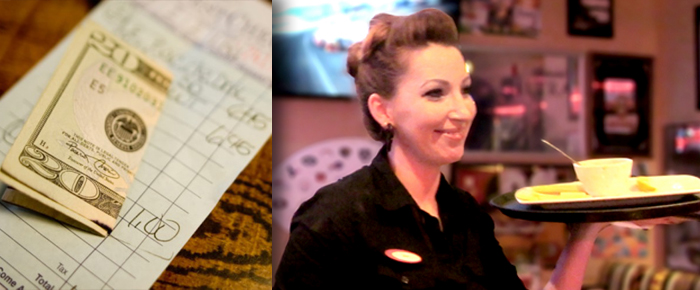
By Haddon Libby
If you own or work at a business where tips are part of the compensation, know that you are increasingly likely to be audited by the IRS due to suspicions related to the under-reporting of tip income. Penalties are significant. As one example, San Francisco restaurant Fior D’Italia paid a fine of $23,000 on top significant legal bills, past due payroll taxes and interest penalties while their employees also found themselves in trouble with the IRS for the under-reporting of tip income.
Many restaurants and their staffs do not have the resources to handle that type of financial hit. When the IRS comes in and finds under-reporting, they typically reach back three years in the assessment of taxes, fines and back interest.
It is estimated that tax underpayments are more than $5 billion a year from restaurants, hotels, valets, hair salons, casinos, taxicabs, massage parlors and other tip receiving businesses. Moving forward, owners and management teams at all other tip receiving businesses are personally liable for not accurately tracking or fraudulently reporting tip income.
As a general rule of thumb, the IRS expects 15% or more of tip income from the employees of most full service restaurants based on extensive and detailed surveys. Estimates are increasingly easy for the IRS as approximately one-third of restaurants and bars have voluntarily agreed to the Tip Rate Determination Agreement (TRDA). This means that those restaurants do spot-checks on all cash and credit payments received over an extended period of time in order to set the estimated tip rate on their businesses over the course of that year. In a place like the Coachella Valley where business is highly seasonal, a pre-determined tip rate like this has the potential to cause an overpayment on taxes for the business and employees during periods of the year when they can least afford it.
For those who think that they can fool the IRS with tricks like 8% or 10% tip rates, think again. The Supreme Court has ruled that the IRS can estimate tip rates when suspicion of fraudulent under-reporting exists. With one-third of restaurants voluntarily reporting, the IRS has a strong database from which to estimate expected tip income from any restaurant type.
Payment processing specialist, CardFlex, has created and patented the only tip tracking system that is in full compliance with IRS standards. Termed TipCentral, their tip reporting system integrates into existing Point-of-Sale systems so that shift managers can quickly and simply cash-out servers and tip-out those who the servers share tips with. Employees receive all tips whether cash or credit immediately at the end of their shifts. Additionally, the employees are protected from audit risks or the overpayment of taxes of their personal taxes because of tip-outs to others.
At a cost of only pennies a transaction, business owners and their accountants love this service as it removes one of the messier and more difficult management aspects of the service industry. With information that is easily sorted, a manager or owner can differentiate good servers from poor servers or quickly identify servers who might not be truthfully reporting cash tips.
TipCentral reduces cash management time and cash miscount losses while providing easy reconciliations, robust reporting and protection from the IRS with audit ready records. While employees might pay more taxes due to the elimination of fraudulent under-reporting of income, they will receive higher social security and unemployment payments over time while having their earnings available to them at the end of every shift.
For full disclosure, I have joined top Food & Beverage Industry professionals in the United States in rolling out this product. For more information on TipCentral, call 213.596.8399 or email info@winslowdrake.com.










































